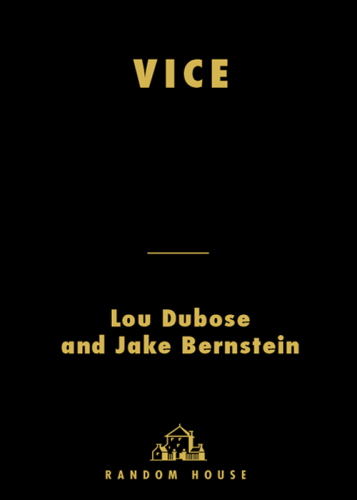
Vice
Dick Cheney and the Hijacking of the American Presidency
کتاب های مرتبط
- اطلاعات
- نقد و بررسی
- دیدگاه کاربران
نقد و بررسی

Starred review from October 1, 2006
Dubose and Bernstein show in this thorough, rollicking career biography that it's Cheney-not the more publicly criticized Donald Rumsfeld, Karl Rove, Condoleeza Rice or President Bush-who is chiefly responsible for the most unpopular aspects of the Bush regime: an imperial executive office and foreign policy; abandonment of democratic ideals (respect for government checks and balances, the Geneva Convention, the Bill of Rights and the Freedom of Information Act); and questionable corporate-government colusion (the secret energy task force, Halliburton's government contracts in Iraq). Tracing Cheney through three White House adminsitrations, six terms in the House of Representatives, and a tour as Halliburton CEO, the portrait that emerges from these pages is both alarming and compelling; like a J.R. Ewing, Cheney proves to be the kind of fascinating figure you love to hate. As obstacles to Cheney's will-Congress, the Constitution, foreign countries, the press, or other politicians-are sidestepped, ignored, or trammeled, Cheney emerges as a classic Machiavellian; in Cheney's case, it appears that the end which justifies the means is power, pure and simple. Against Cheney, idealistic liberals who believe that an appeal to democratic ideals, the Constitution, or basic decency will work with this administration emerge here as painfully naïve; unfortunately, this realization has only settled in after the damage was already done. Dubose and Bernstein present a sobering and darkly flattering expose of the reclusive power behind the throne, and a grim vision of what his legacy may be.

November 1, 2006
Dick Cheney, who has been an inside fixture in American politics for roughly a generation, is arguably the most secretive and most powerful vice president in U.S. history. Anyone wishing to make sense of the George W. Bush administration is well advised to follow the lead of these two veteran political observers. Dubose (coauthor, with Molly Ivins, Bushwhacked) and Bernstein (executive editor, Texas Observer) view Cheney the power broker, the deal maker, and, perhaps, the presidency breaker. They believe that Cheney cares more about power than process, more about the dark arts of fighting terrorism than the necessary and proper dialog of democracy. Cheney's actions, according to the authors, mock our Madisonian system of checks and balances that provides constitutional constraints on capacious presidential prerogative. Cheney came to the vice presidency convinced that power in Washington had improperly shifted from the Oval Office to Capitol Hill, and he has been on a crusade to reverse that power flow. In the process, the authors contend, he has often exhibited more zeal than understanding. Cheney partisans likely will reject if not condemn this expos; others should not be so hasty to do so, for more than just the vice presidency is ultimately at stake. Recommended for all libraries.Stephen K. Shaw, Northwest Nazarene Univ., Nampa, ID
Copyright 2006 Library Journal, LLC Used with permission.

November 1, 2006
Dubose and Bernstein, journalists who have covered Texas politics with a particular eye on the career of President George W. Bush, examine the power and personality of the vice president. With a penchant for secrecy and disdain for Congress and the press, Cheney has managed to skirt all the rules that were meant to balance powers in the U.S. government, forever changing the power vested in the office of the vice president. Dubose and Bernstein detail Cheney's close ties to energy interests and how those ties influenced policy and led to efforts to circumvent congressional oversight. In what Dubose and Bernstein call a secrecy "befitting the Kremlin," Cheney maneuvered around sunshine laws and defied the media, Congress, and lawsuits to assert the administration's rights to secrecy in developing national policy on everything from energy to the war in Iraq. Dubose and Bernstein also ponder the implications of Cheney's actions for the future of the U.S. government.(Reprinted with permission of Booklist, copyright 2006, American Library Association.)

























دیدگاه کاربران